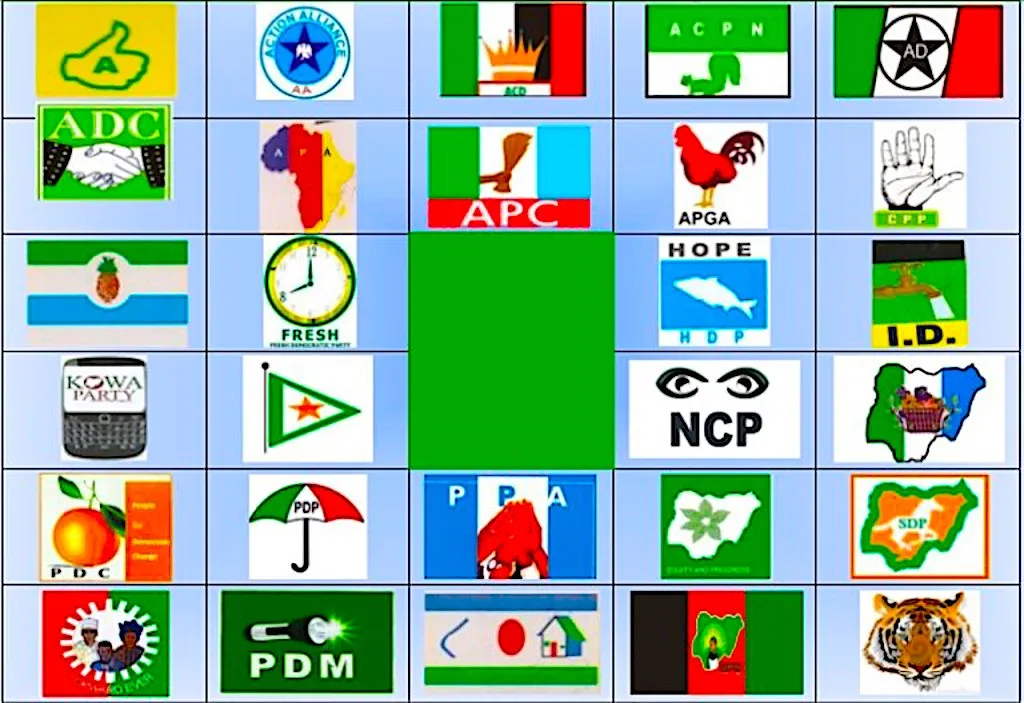Political party nomination fees and the shrinking political space
By Samson Itodo It is glaring from the high cost of nomination fees imposed by Nigerian political parties that the commercialisation of politics is fast becoming an indelible feature of Nigeria’s political culture. The outrageous cost of nomination forms reinforces three axiomatic propositions. First, the manner with which political parties increase the cost of nomination […]

By Samson Itodo
It is glaring from the high cost of nomination fees imposed by Nigerian political parties that the commercialisation of politics is fast becoming an indelible feature of Nigeria’s political culture.
The outrageous cost of nomination forms reinforces three axiomatic propositions. First, the manner with which political parties increase the cost of nomination forms with sybaritic excitement reinforces political parties as rent-seeking enterprises with no regard for inclusive democratic participation. Second, it affirms the dearth of ideological variations amongst Nigerian political parties. In other words, virtually all the parties subscribe to the view that money, being ‘the mother’s milk of politics’ should define leadership recruitment. And lastly, the antidote to the evolution of a plutocratic state rests squarely on a comprehensive and meaningful political finance reform that encompasses political party finance and campaign finance.
Fair competition is the hallmark of candidate recruitment in political parties. Imposing high costs on nomination forms limits accessibility to political entrepreneurs with deep pockets and wide patronage networks, thereby shrinking the political space. When money shapes politics, it assaults the democratic right of citizens to contest for public office, especially where it determines who qualifies to participate in politics.
The implication is the evolution of a state that is governed and exists to serve wealthy elites at the detriment of popular participation. Inertia towards electoral participation is a knock-on effect of a commercialised political process that most politicians tend to ignore. As long as money, not competence, character, or popular appeal, operates as a fundamental variable in leadership recruitment of political parties, voters will refrain from voting because commercialised political processes are more likely to produce unpopular, unaccountable, and incompetent candidates.
Needless to say, a highly monetised process hamstrings the political aspiration of youth and women and it infringes on the spirit behind the Not Too Young To Run Act.
To a large extent, the justification advanced by political parties for the high cost of nomination forms is implausible. They claim that the high monetary value placed on the nomination forms is a due diligence measure to distinguish pretenders from contenders. To the parties, it is a parameter for measuring interest, seriousness and commitment to contest for office. In the absence of state funding of parties, parties generate revenue from the sale of forms to fund party activities.
The reliance on the high cost of nomination forms as a due diligence measure indicts political parties for failing to invest in long-term leadership recruitment, development, retention and transition. If parties maintain consistent, inclusive and structured engagements with party members on policy, leadership and governance, it will address the leadership recruitment question. Through strategic engagement opportunities, the leadership philosophy and values of political parties can be espoused and inculcated into party members ahead of the electioneering season. Prospective contenders can be identified, groomed, and empowered to contest for party nominations. It is counterproductive for political parties to wait for the election commission to ring the election bell before engaging in leadership recruitment. The true test of a party’s commitment to decommercialising politics is its long-term leadership recruitment approach and strategy.
Furthermore, the over-dependence on revenue from the sale of nomination forms to run party affairs exposes the poor health of political parties. Ideally, political parties fund candidates, but the reverse is the case in Nigeria, where candidates fund political parties. Political parties cannot generate revenue through membership dues, levies, and donations hence the high cost. The removal of state funding for political parties in 2010 sanitised the political finance ecosystem; however, the introduction of private financing such as membership dues and in-kind donations has not been effectively explored by political parties for a plethora of reasons. First, most parties fail to maintain an accurate, credible and updated register of members, making it impracticable to mobilise membership dues and levies. In the past, parties were funded through membership dues and levies, but in contemporary Nigerian politics, the preference of party leaders is to generate ‘quick money’ during party primaries. This condition serves the interest of godfathers and moneybags because it makes party leaders subservient and captives of entrenched interests or financiers of the party, leading to the ‘political capture’ of the electoral process—secondly, weak internal control mechanisms and poor organisational culture in parties. Political parties have been indicted several times by the electoral commission for failure to maintain proper financial records, fixed assets register and undertake periodic audits of accounts. Without a proper financial management system, political parties can’t mobilise, manage and retire private funding with a high degree of transparency, accountability and compliance with political finance regulations.
The current funding model of political financing creates unfair competition and shrinks the political space to the detriment of competent leaders, youth and women. Political finance reform is an urgent necessity to ensure the political space is accessible to all persons regardless of age, economic class, tribe and creed. Any meaningful reform of party funding or campaign funding should deliver the following four key outcomes; first, limit the influx of unregulated money in the political process; secondly, enhance the capacity of political parties on resource mobilisation and maintenance of proper account of financial transactions and assets register; thirdly, strengthen INEC’s capacity to monitor and ensure compliance with political finance regulations and; fourth explore new pathways of candidate selection that de-emphasises the place of money and economic power over competence, capacity and character. The net effect of these outcomes will be improved safeguards for the political space, party supremacy, and candidate recruitment.
Itodo is the Executive Director of Yiaga Africa
